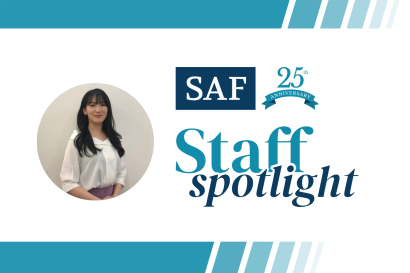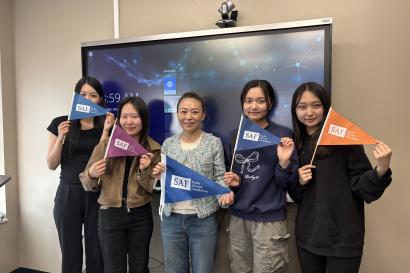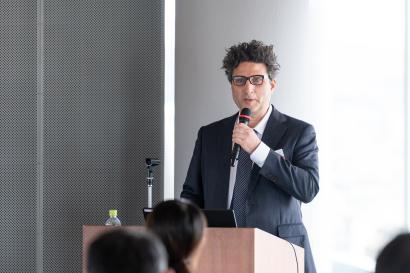Over the summer, the Chinese government announced that it was temporarily suspending entry and exit visas to its citizens for non-essential travel, as well as the issuance of new passports. Speaking at a press conference on July 30, a spokesperson confirmed that “a strict approvals system with no permits for non-emergency or non-essential trips out of China” had been introduced, to “ensure public safety during the pandemic.”
This latest development poses a challenge for Chinese nationals who were planning to study abroad, or considering taking part in such an opportunity. After all, without the right identification and documentation, how might students even apply to international programs, let alone plan an extended trip abroad? It’s a double-pronged problem that exists for students in China right now, but fortunately, one that is more nuanced than it appears at first glance.
Study Abroad Foundation (SAF) Executive Director Carol Carmody says that while there have been changes to the Chinese passport process, she believes that for students, it’s a matter of adapting to new rules and procedures rather than a signal that should be interpreted as anything more far-reaching.
“I think that the Chinese government just wants to be sure that students have actually been accepted to a university,” says Carmody. “They want to know that that is the purpose of going abroad, if they are going to issue a passport to anyone right now.”
What does that mean in practice? Increasingly, students are being asked by Chinese officials to provide a letter of acceptance prior to applying for their passport and exit permit. Historically, most western universities are accustomed to receiving a copy of applicants’ passport information page during the application process. Once accepted, a letter of acceptance is granted by the institution, which can then be used to apply for the relevant travel documents on both sides. Subsequently, the latest situation leaves many Chinese students in a paradoxical situation: they cannot apply for a passport without proof of acceptance from a host university, but lack the required materials to apply for such programs in the first place.
“It throws a wrench in the processes that universities have established and are accustomed to,” Carmody acknowledges. But it’s also a hurdle that can easily be navigated – more of the same in a now two-year-long ordeal of life under Covid-19.
“I think there have already been many adjustments made because of the pandemic, and this is just one more thing that we have to be cognizant of,” she says, adding: “We've got to find ways to work with what the Chinese officials are asking.”
Thankfully, SAF and its university partners have been able to do just that. “What we're asking many of our institutions to do is to look at students’ admissibility, and provide an acceptance letter based on that,” explains Carmody.
Chinese students use the acceptance letter to apply for their passports and, once issued, SAF provides the host university partner with the relevant information required. The institution can then proceed with issuing the relevant documents – typically an I20 or DS2019 – for students to secure their US visas.
“It’s a little bit more of back and forth – it takes time,” says Carmody. “But ultimately, we have found that our host university partners in the United States understand that regulations change, and that the Chinese government is just trying to control the spread of Covid-19.”
“It's a change but I think that we're all willing to do what needs to be done to give students the opportunity to study abroad.”
Despite acclimatizing quickly to the change, many American universities have yet to see the return of Chinese students to pre-pandemic numbers, especially compared to bullish markets like Japan and South Korea. It’s tempting to assume that passport issuances play a role in this, but Carmody believes it’s likely a small factor in a far more complex and multifaceted situation on the ground.
“Our enrollments are not where they were before the pandemic in China,” she observes. “It’s difficult to understand if that's because students don't want to travel abroad – which is certainly understandable – or because many Chinese universities are not permitting students to travel abroad. Either way, I don’t believe passport issuances are the biggest obstacle we face.”
Still, there’s every reason to be optimistic. The Chinese government continues to have interest in sending the country’s talented students to SAF’s network of elite and highly-ranked institutions. “I think that as long as students can show that they have been legitimately admitted for visiting non-degree programs, they'll still be able to get a passport.
Under the current climate, an intermediary like SAF has also become ever more essential, providing valuable guidance to both universities and students to decipher the new system. Carmody believes that SAF is uniquely positioned in this space to give comprehensive support along the way, emphasizing the need for early preparation and proactive planning.
“We encourage students to start planning for study abroad in their first year, so for our part, we also must ensure they have the information to start thinking about that,” she advises. “The earlier you get organized, the better. Planning early gives you more time to strategize about how to get that passport.”
Although it’s been a challenging past few months, the executive director says that, surprisingly, she feels uplifted by the experience, bolstered by the collaboration and pragmatic attitudes of her colleagues. Carmody believes it’s a sign of good things to come.
“I'm really grateful for the patience, and the perseverance, of both our host and sending university partners,” she says.
“Our work is so tied to mobility, yet everyone found ways to offer programming and to stay connected. I think that's a great testament to this field. It leads me to believe that when mobility resumes and borders reopen, we're going to get back to some semblance of normalcy. Because we didn’t close our doors. We didn't stop offering programs. We kept going, and I think that's a sign that the industry is really healthy.”




